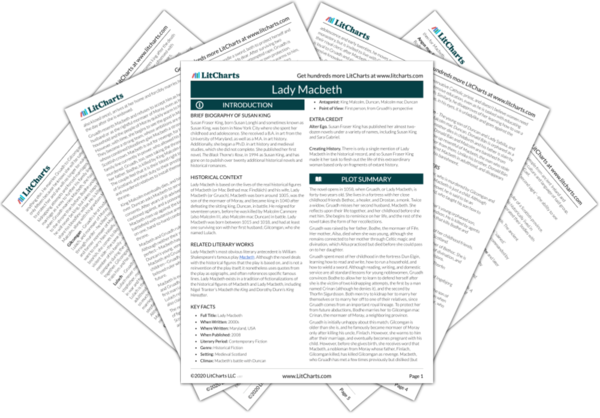Gael/Gaelic Quotes in Lady Macbeth
Drostan, who has long known me, has a fine hand with a pen and hopes to write a chronicle about me. This would be an encomium, a book of praise, for his queen. I told him it was a silly notion. […] From what my advisors say, Malcolm Canmore—ceann mór in Gaelic, or big head, two words that suit him—will order his clerics to record Macbeth’s life. Within those pages, they will seek to ruin his deeds and his name. My husband cannot fight for his reputation now. But I am here, and I know what is true.
“The old legends are filled with such women—the great Irish queen, Macha, and Princess Scathach of Skye, who trained warriors in her fighting school, and also her sister Aoife, who bested Cu Chulainn and bore his son […] Celtic women have fought beside their men since before the names of kings were remembered. And even though Rome forbids Gaelic women to fight, it is rightful enough according to our customs.”
“They forbid with good reason,” Maeve said, bouncing Lulach on her lap. “Women have enough to do and should not have to go out and fight men’s battles, too.” […]
“The eyes of the Church cannot easily see beyond the mountains of the Gaels,” I said, “where warlike behavior in a woman is not sinful heresy, and is sometimes even necessary.” And I remembered my early vows—as a girl taking up a sword to defend herself, as a woman swearing on a sword to defend her own. Another facet of my obligation to my long legacy came clear: if others were so set on eliminating my line, and I and Lulach the last of it, then I would be steadfast as any warrior.
“Your weapons practice and your desire for vengeance,” Maeve told me one day, “are hardening you, dulling the bed of your womb. How can you expect to conceive a child when you feed yourself on spite and anger? Those are poisons for the body.”
She made me think, I admit, and she made me wonder. But I did not stop, not then. […]
“Your wish for vengeance is sinful,” [Father Osgar] told me one day after confession, when we walked a little. “But it is understandable. Let prayer and faith heal you.”
“I cannot give it up,” I said. “I am not yet done with this.”
“Give it up or keep it close,” he answered, “but know that until you find some peace in your heart, I will pray on your behalf. Grief is sometimes like a sharp-toothed demon that gets hold of our hearts. But its grip weakens with time, and one day you will be free of it.”
“My ambition was always for Scotland as much as myself. We must be careful to preserve the heart of what is called Gaelic, the honor, the power in it, when the outer world—the Church, our enemies, the trade, all the rest—stands to change us. Duncan is hastening the end of the Gaels, if he even knows it.”
“You can honor that heritage and vindicate your kin and mine,” I reminded him.












